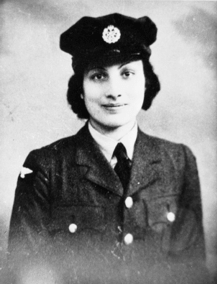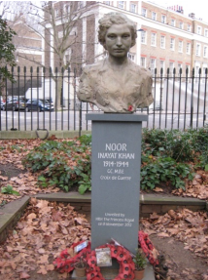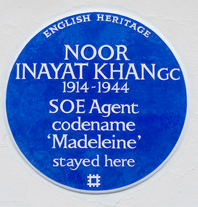The History Column: Noor Inayat Khan
Noor Inayat Khan was a young woman from an aristocratic and artistic Indian family which came to Europe in the early twentieth century. They lived in Paris in the 1930s, where she became fluent in French. As war loomed they fled to London, and she enlisted in the Women’s Auxiliary Air Force (WAAF).

She trained as an agent and radio operator for the Special Operations Executive (SOE) which supplied and supported the French Resistance in their intelligence and sabotage work. On the night of 16 June 1943 she was sent into France, the first woman in this role.

The Type III Mk.2 radio set fitted into a briefcase and sent and received morse code messages at frequencies in the HF band, with an output power of about 20 W, and it required a long wire antenna to be deployed. It was robust, but quite heavy - 34 lbs (15 kg).
The work was extraordinarily dangerous, with the constant threat of detection by the Gestapo or betrayal. She was arrested in October 1943 and interrogated under torture, but did not betray any information. She was executed in Dachau concentration camp at dawn on 13 September 1944. Her last words were reported to be ‘Liberté !’


Blue plaque at 4 Taviton Street, London.
She was posthumously awarded the George Cross and the Croix de Guerre. There is a memorial to her in Gordon Square, Bloomsbury, and a blue plaque at the house at 4 Taviton Street (now part of University College London) where her family lived.
Further information may be found in a BBC radio programme in the series Great Lives, at:
https://www.bbc.co.uk/sounds/play/m0012s85
and a demonstration of a Type III Mk.2 radio set being set up and used in the field, in the 80 metre amateur radio band:
https://www.youtube.com/watch?v=VBXZl0Pr3rw
Authored by Hugh Griffiths
University College London

